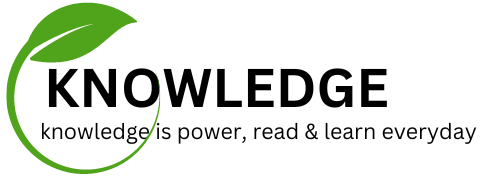Let us understand how to achieve financial freedom at an early age. I want to achieve financial freedom at an early age, and I am sure that is your wish too. Financial freedom means having enough savings, investments, and cash on hand to afford the lifestyle you want without being dependent on your monthly salary. Financial freedom will help you to retire sooner or pursue your passions without the need to earn a specific amount each year. In this article, let us understand however we can achieve that in a step-by-step process:

1. Setting Clear Financial Goals
1.1 Define Your Financial Freedom
You need to define your financial freedom. This will vary from person to person, but it is important to have a clear understanding of your desired lifestyle and the amount of money you need to support it. Consider factors such as living expenses, travel plans, and any future financial commitments you may have, such as starting a family or buying a home.
Let us understand how we can achieve this goal through below steps:
1.2 Set Specific, Measurable Goals
Once you’ve defined your financial freedom, it’s time to set specific, measurable goals. These should include short-term, mid-term, and long-term goals that outline the steps you’ll need to take to achieve financial freedom. Make sure your goals are realistic and attainable and adjust them as needed to account for changes in your financial situation or priorities.
2. Developing a Solid Financial Plan
2.1 Create a Budget
A crucial component of achieving financial freedom is creating a budget that covers all of your financial needs. This includes allocating funds for living expenses, loan repayment, savings, and investments. A well-structured budget will help you stay on track and ensure that you’re making progress toward your financial goals.
2.2 Monitor and Adjust Your Budget Regularly
It’s important to review and adjust your budget regularly to account for changes in your income, expenses, and financial goals. This will help you stay on track and make any necessary adjustments to your spending habits or savings plan to continue making progress toward financial freedom.
3. Building an Emergency Fund
3.1 Determine How Much You Need
Setting up an emergency fund is critical for any unforeseen events like job loss or medical expenses. The first step in building an emergency fund is to determine how much you need to cover 3 to 6 months of living expenses.
3.2 Set Up Automatic Savings
Once you’ve determined how much you need in your emergency fund, set up automatic savings contributions for the same into a separate account. It is important to buy medical and term insurances to cover these. This can be done through auto debit.
4. Managing and Reducing Debt
4.1 Prioritize High-Interest Debt
When it comes to paying off loan, it’s essential to prioritize high-interest loan first, such as credit card balances or personal loans and after this home loan. By focusing on high-interest loan first, you’ll save money in the long run and make faster progress toward financial freedom.
4.2 Consider Debt Consolidation or Refinancing
If you have multiple sources of loans, refinance to lower your interest rates and simplify your repayment process. This can help you save money on interest charges and make it easier to manage your loan payments.
5. Saving and Investing for the Future
5.1 Start Saving Early
The sooner you start saving for your future, the more time your money has to grow through compound interest. Even small contributions can make a big difference over time, so it’s important to start saving as early as possible to maximize your potential returns.
5.2 Diversify Your Investments
I would recommend to diversify your investments in stocks, bonds, and real estate, to minimize risk. By diversifying your investments, you’ll be better prepared for market fluctuations and unknown risks.
6. Increasing Your Income
6.1 Leverage Your Skills and Expertise
One way to increase your income and accelerate your journey to financial freedom is by leveraging your skills and expertise. This could involve taking on freelance work, starting a side business, or pursuing additional education or certifications to advance your career.
6.2 Seek Out Passive Income Opportunities
Passive income is money earned with little to no effort, such as rental income, dividends from stocks. By generating passive income, you can add on to your active income and increase your overall earnings, making it easier to achieve financial freedom.
7. Practicing Economical Living
7.1 Differentiate Between Needs and Wants
One of the keys to achieving financial freedom is learning to differentiate between needs and wants. By focusing on your essential needs and cutting back on non-essential expenses, you’ll free up more money to put toward savings and investments.
7.2 Adopt a Frugal (means careful while using money) Mindset
Adopting a frugal mindset means finding ways to live well within your means, such as shopping only what you need, cooking at home, and seeking out free or low-cost entertainment options.
8. Regularly Reviewing Your Financial Progress
8.1 Track Your Net Worth
Tracking your net worth – the difference between your assets and liabilities – can help you understand your overall financial progress and determine whether you’re on track or not. Regularly reviewing your net worth can also help you identify areas where you need to make adjustments to your financial plan.
8.2 Celebrate Milestones
As you make progress toward financial freedom, it’s essential to celebrate your milestones along the way. This can help to develop your positive financial habits and motivate you to continue working toward your goals.
9. Seeking Professional Advice
9.1 Consult a Financial Advisor
When you reach a certain level of financial success, it may be beneficial to consult a financial advisor to help you navigate more complex financial decisions and ensure you’re on the right path.
9.2 Stay Educated on Financial Matters
Continuing to educate yourself on financial matters is essential for staying informed and making sound financial decisions. Stay up to date on new investments options, tax laws, market trends, and investment strategies to maximize your financial success.
10. Prioritizing Your Health and Well-being
10.1 Invest in Your Health
Maintaining good health is not only essential for your overall well-being but can also have a significant impact on your financial success. Medical expenses can quickly take away your savings and destroy your financial plans, so it’s essential to prioritize your health by getting regular check-ups, eating well, and exercising regularly.
10.2 Find Balance Between Work and Life
Achieving financial freedom doesn’t mean sacrificing your happiness or well-being. It’s essential to find a balance between work and personal life to ensure you’re enjoying the journey and not just focusing solely on the destination.
We will try to understand how we can achieve this through an example.
Let’s say you have defined your desired lifestyle and calculated the amount of money you need to support it. Your estimated monthly living expenses, including rent, groceries, utilities, transportation, and other miscellaneous costs, amount is Rs. 50,000.
In addition to your regular expenses, you have a travel goal of taking an annual vacation with an estimated cost of Rs. 1,50,000. You also have plans to start a family in the future, and you estimate the expenses related to buying a home, childbirth, childcare, and education to be around Rs. 10,00,000 (consider this to be your reoccurring cost to pay your home loan, children fees, shopping, buying new items, unexpected expenses, etc.)
Considering above factors and expenses, your annual financial commitments would look as below:
Living expenses: Rs. 50,000 x 12 = Rs. 6,00,000
Travel plans: Rs. 1,50,000
Future financial commitments (starting a family): Rs. 10,00,000
Total annual financial commitments: Rs. 17,50,000
As per the above example, you need Rs. 17,50,000 yearly into your account without doing anything to reach financial freedom.
Let us understand, your age is 30 and you decided to invest Rs. 23500 monthly in mutual funds for 20 years with an annual return of 12% per year. At the age of 50, you will get Rs. 2,34,79,976.
If you do FD (7.5%) for this amount, you will receive Rs. 17,55,000 in the form of interest. This way you can reach the financial freedom.
Conclusion
Achieving financial freedom at an early age is possible with careful planning, discipline, and a commitment to making positive financial choices. By following the steps outlined above, you’ll be well on your way to securing your financial future and enjoying the freedom that comes with it.
Recommended Books:
- Rich Dad Poor Dad by Robert Kiyosaki: This classic personal finance book challenges conventional wisdom about money and provides valuable insights on how to think like the rich. Kiyosaki shares lessons learned from his “rich dad” and his “poor dad,” offering guidance on building wealth, investing, and achieving financial independence.
- The Total Money Makeover by Dave Ramsey: Dave Ramsey is a renowned personal finance expert, and this book outlines his proven seven-step plan to financial freedom. From eliminating debt to saving for emergencies and investing for the future, Ramsey provides practical advice and strategies to transform your financial situation.
- Your Money or Your Life by Vicki Robin and Joe Dominguez: This book takes a holistic approach to personal finance and encourages readers to examine their relationship with money. It offers a nine-step program that helps readers redefine their values, align their spending with their values, and ultimately achieve financial independence by focusing on increasing income and reducing expenses.
Other Recommended Articles:
Thank you for reading this blog post and hope that you’ve found it helpful. Remember, learning is a lifelong process, and the more we know, the better equipped we are. We would love to hear your thoughts and feedback. Please feel free to leave a comment or send us an email. We’re here to learn from you as well. Bookmark our website so that you can stay informed and engaged on future blog posts and updates. We look forward to bringing you more valuable content in the future. Until then, keep learning, keep exploring, and keep embracing the wonders of knowledge.


